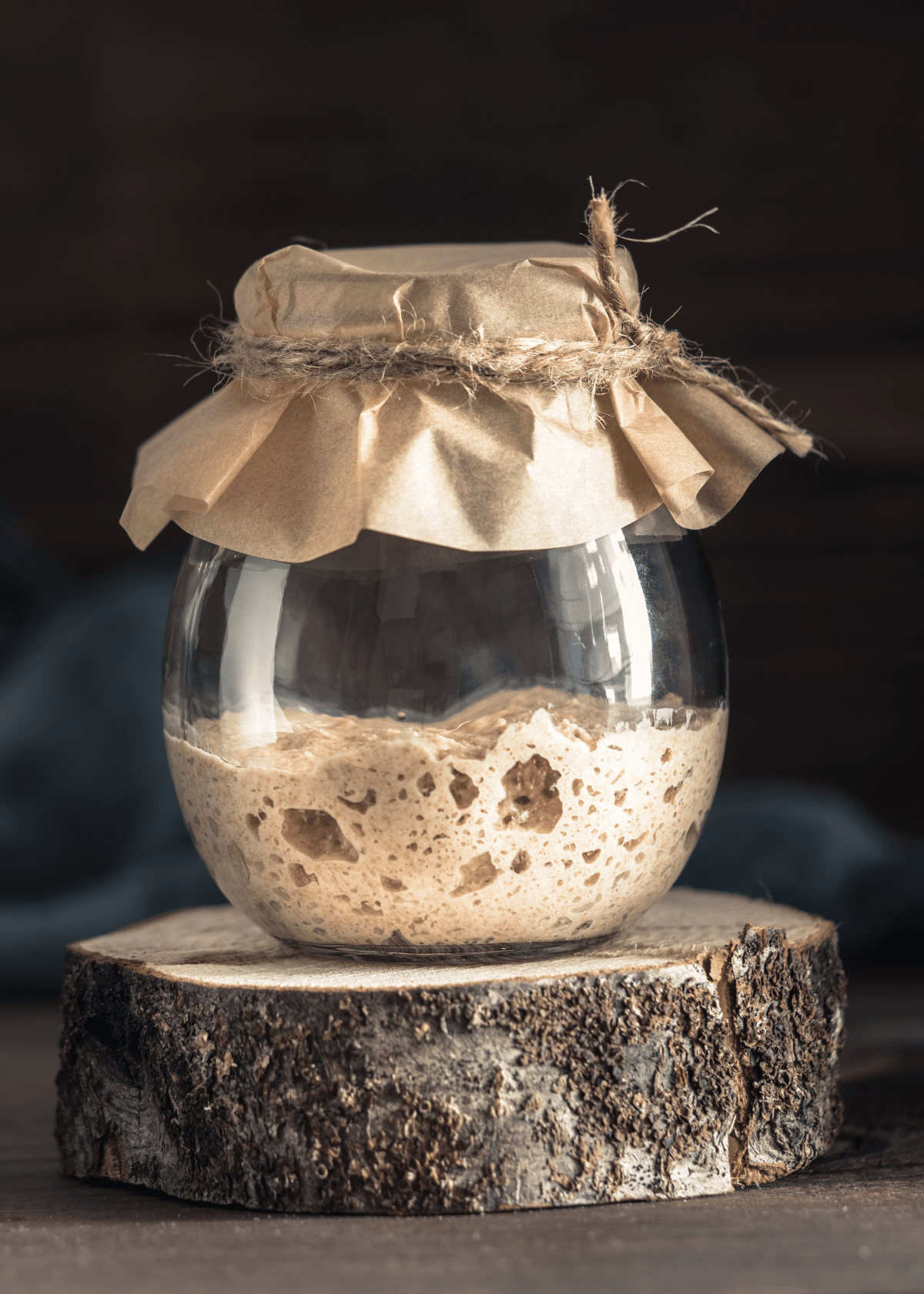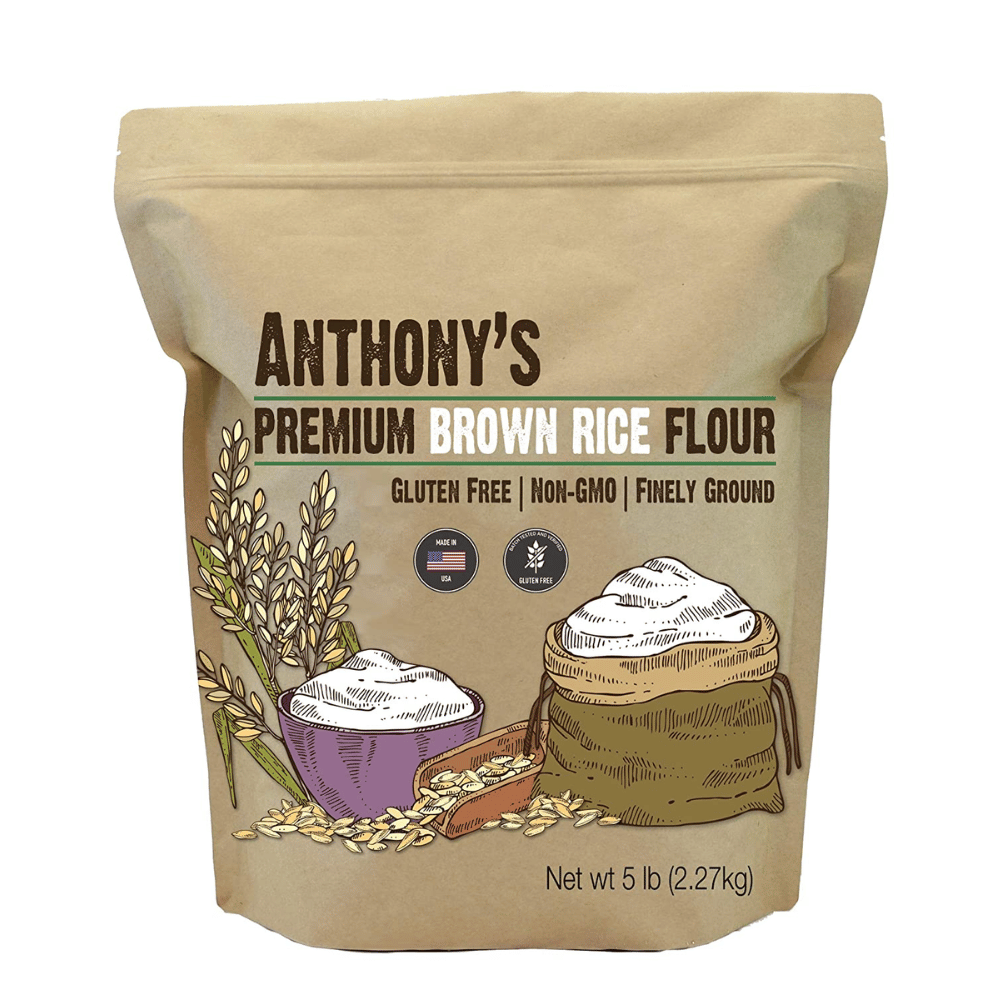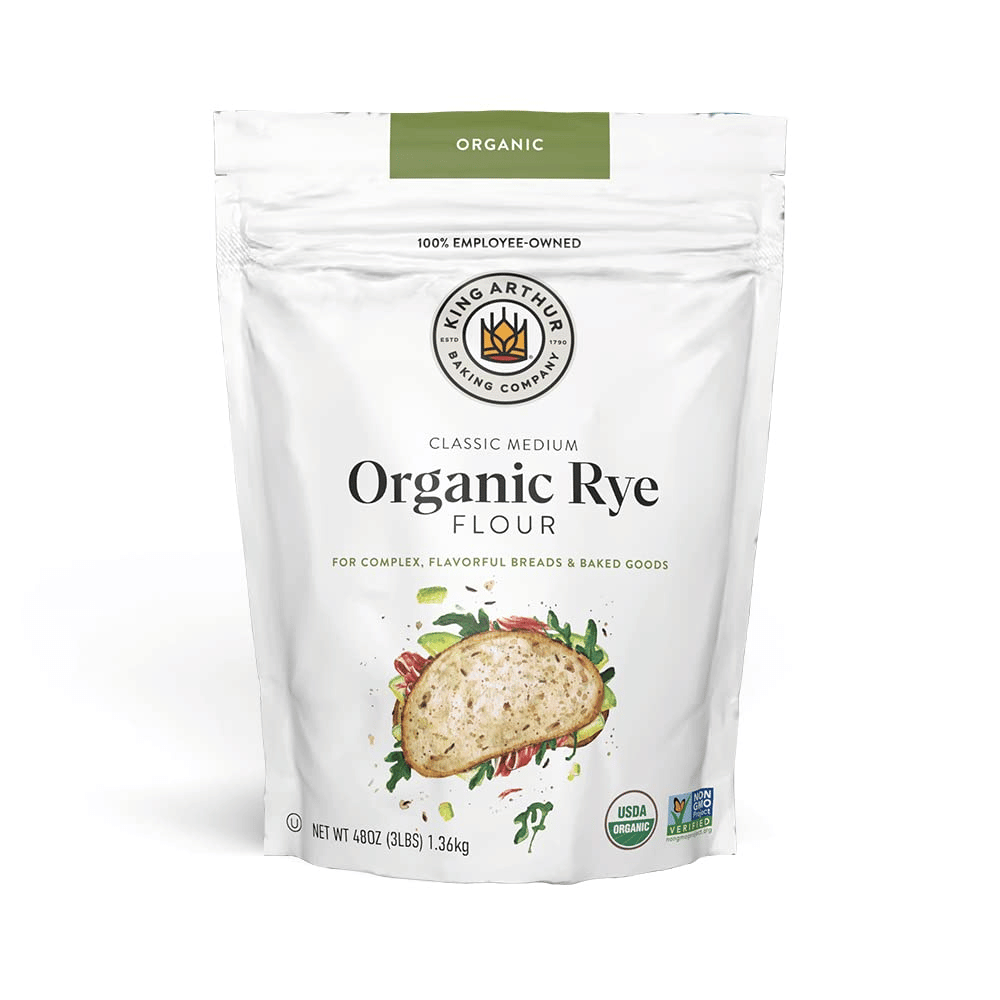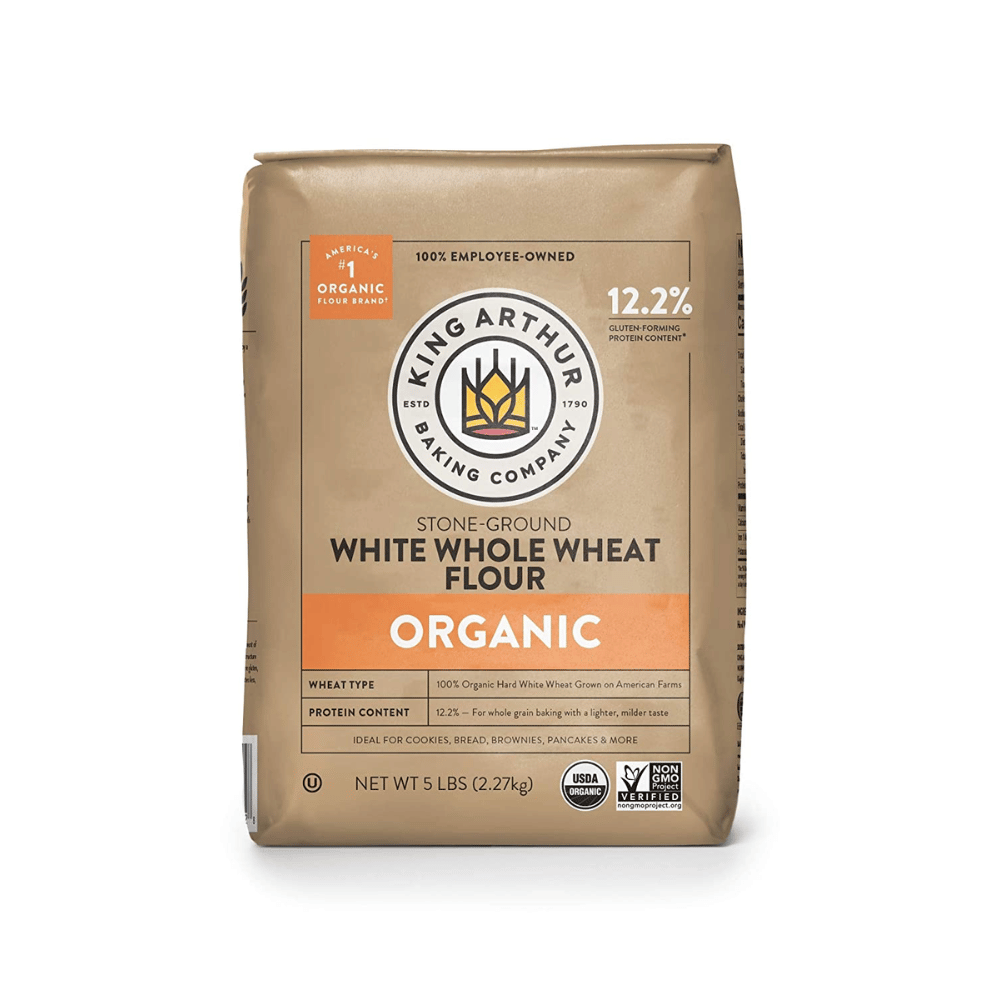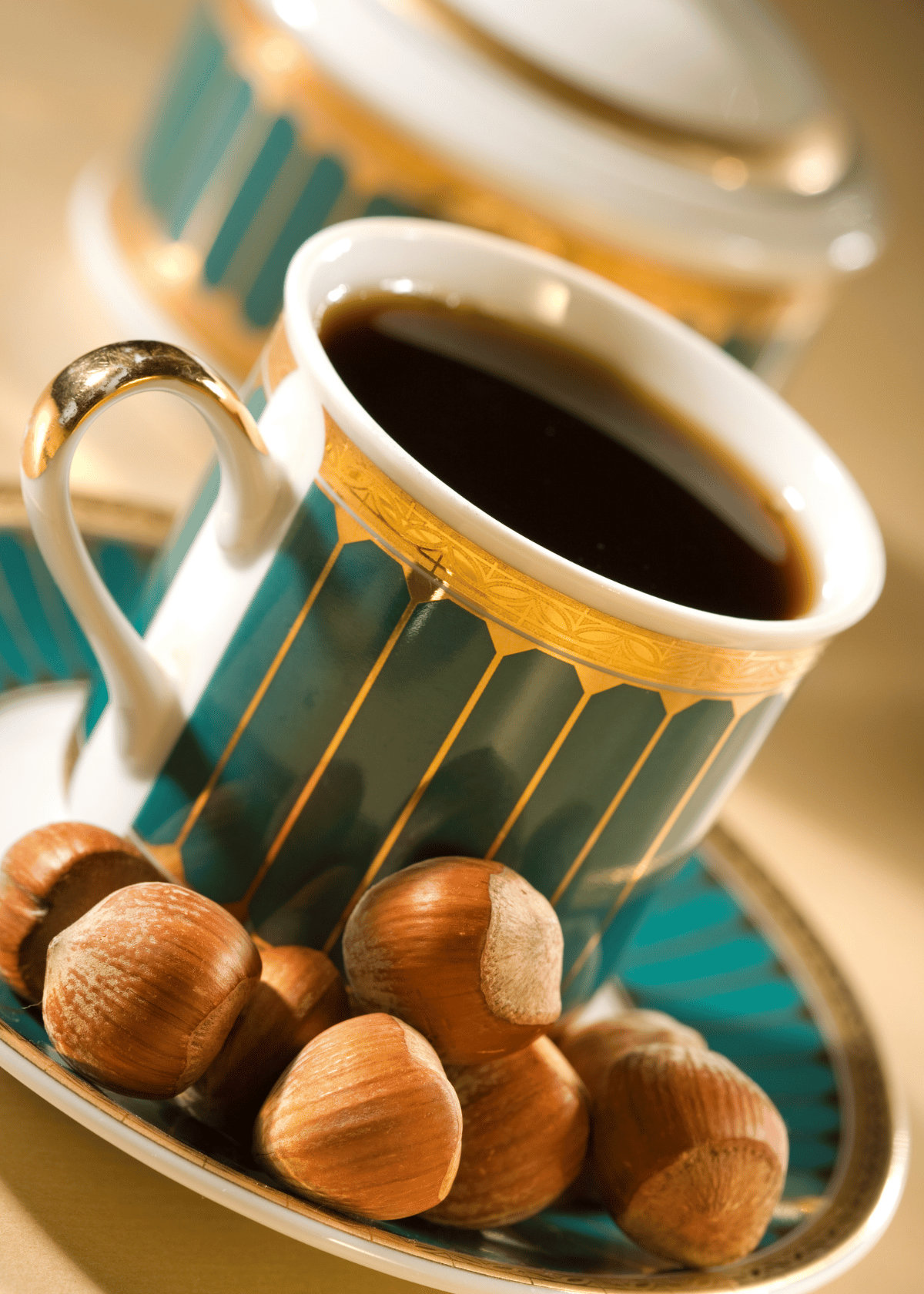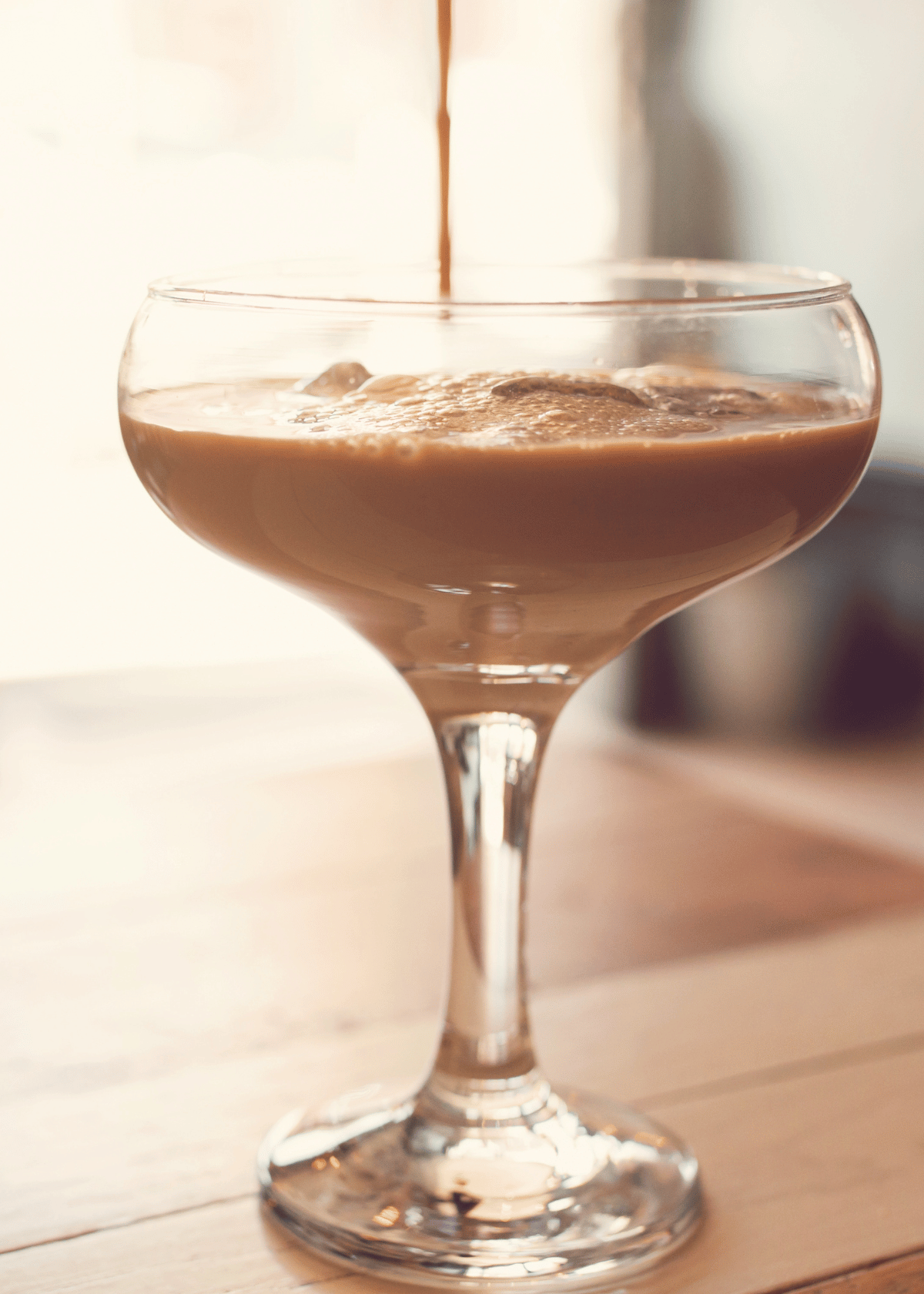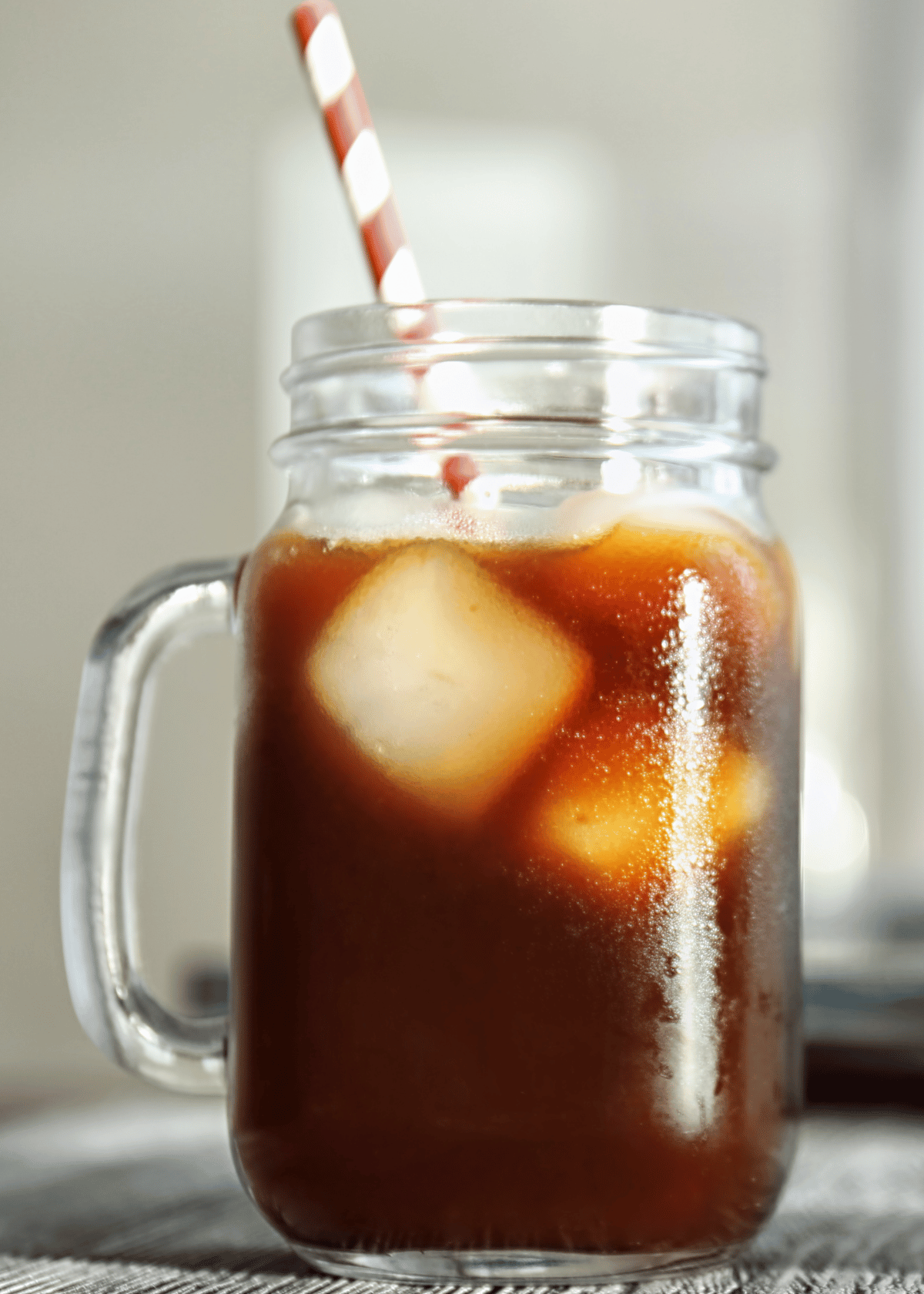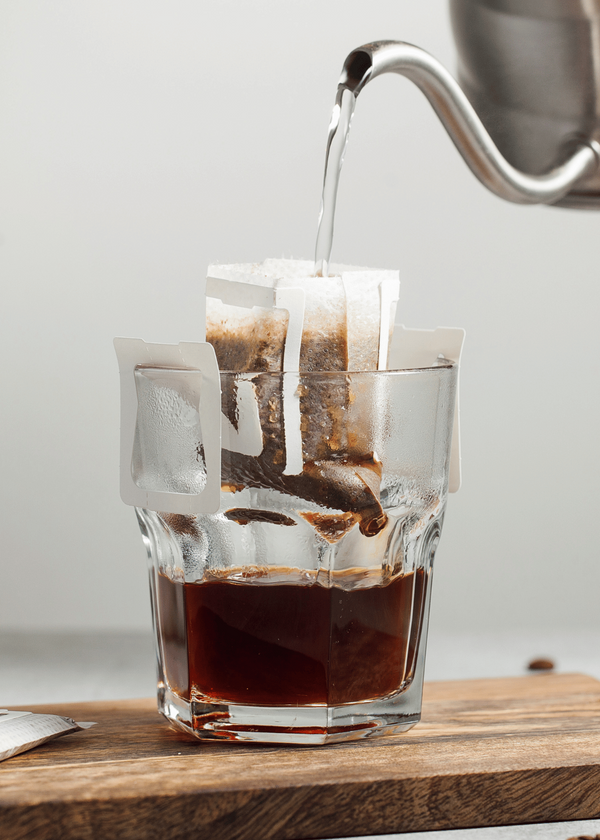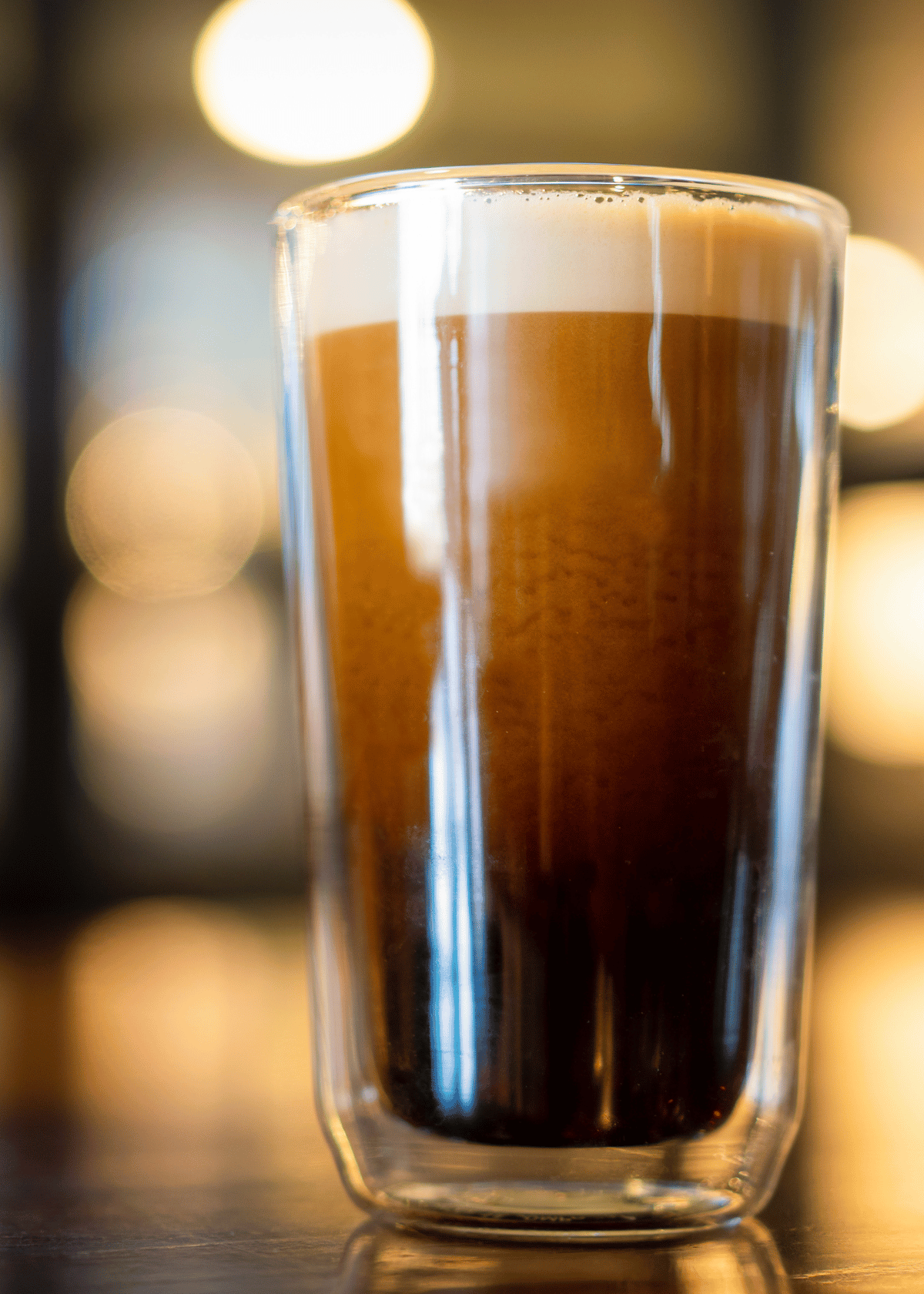Have you been searching for the perfect flour to use for your sourdough starter?
You’ve come to the right place! Our comprehensive guide will help you understand all of the different types of flour that can be used in a sourdough starter. We’ll provide some tips on how to select the best flour, so whether you're just getting started with sourdough or are already an experienced baker, this guide is sure to help!
With our helpful advice, you can make sure your sourdough starter succeeds and bakes up perfectly every time. And why should baking something as delicious as sourdough be difficult? Let us help simplify it with this comprehensive guide - creating a truly amazing and delicious loaf of bread has never been easier.
Check out our guide now and get ready for the most amazing bread ever made!
How We Choose The Best For You
A lot of people are intimidated by the idea of making their own sourdough starter.
It can be hard to know where to start when it comes to making your own sourdough starter. Do you use rye flour? Wheat flour? How much water do you need? What's the right temperature?
We're here to help! In this article, we'll take a look at four different types of flour that can be used for a sourdough starter, as well as one gluten free option. We'll also recommend a highly rated pre-made sourdough starter that is available on Amazon.
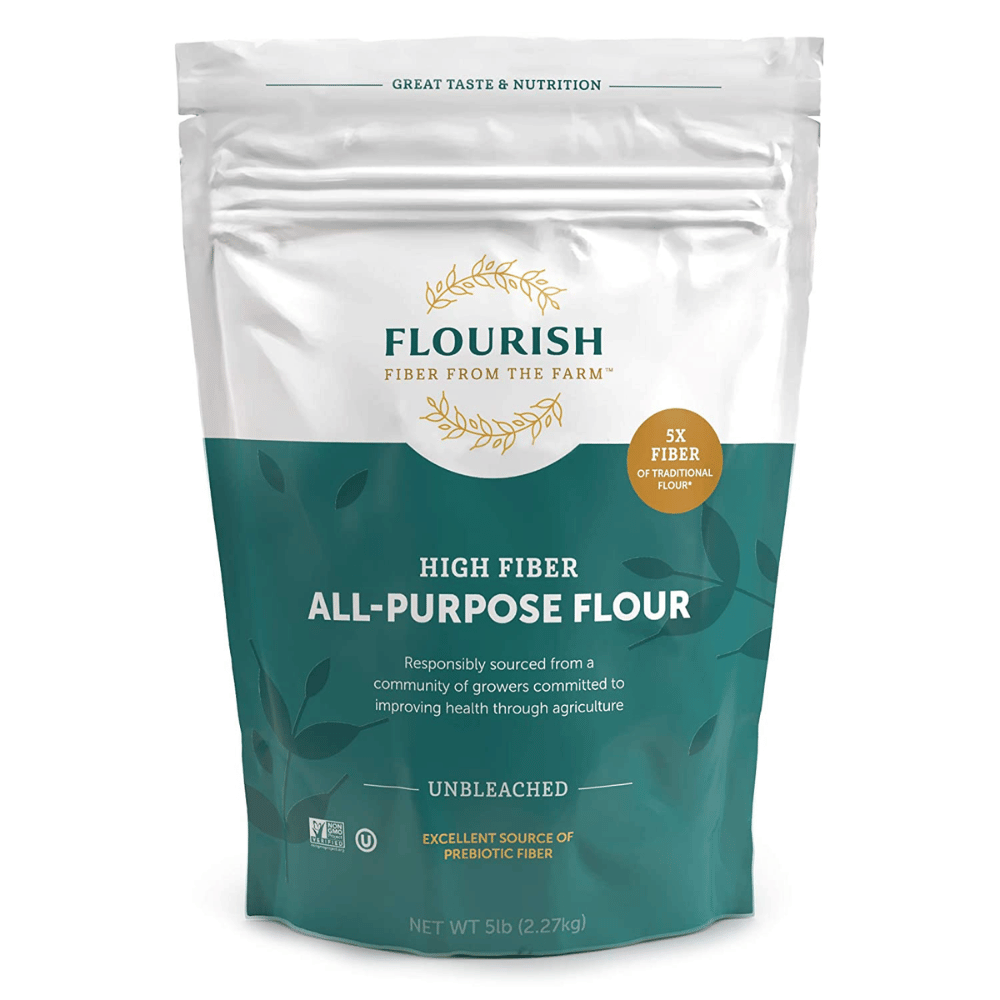
Flourish Unbleached All Purpose Flour
Best All Purpose Flour for Sourdough Starter
Why We Mention It
Flourish Unbleached All Purpose Flour provides an easy and healthy option for baking. This great flour is milled from certified organic wheat, free of unnecessary artificial ingredients, and high in dietary fiber – making it a perfect choice for your health-conscious kitchen. Not only does Flourish offer better nutrition than regular wheat flour, but its one to one measuring capability makes it just as convenient and simple to use. It's ideal for healthier baking without sacrificing flavor or texture; this flour will bake up just like regular flour you've come to depend on.
Flourish is especially beneficial if you're looking to incorporate low-carb diet options into your diet plan. It contains more fiber than standard flours which makes it an excellent addition to any health-focused meal program. So whether you’re watching your carb intake or just looking to get more nutrition out of everyday food items, choose Flourish Unbleached All Purpose Flour – the simple way to add wholesome goodness into every bite!
Some Facts You Should Know
Flourish Unbleached All Purpose Flour is the perfect choice for those looking to improve their culinary experiences while also improving their health. This flour is specifically formulated with 13.3% protein, offering more fiber and a lower amount of net carbs and calories per serving. Whole grains, such as this one, are essential for providing your body with a healthy source of energy and boosting your metabolism. Plus, Flourish flour provides added benefits that help you maintain healthy blood sugar levels, making it an excellent ingredient inclusion when cooking or baking!
It doesn't hurt that Flourish flour tastes great - like traditional all purpose flour - but it's actually produced using a unique variety of wheat that is both non-GMO and sourced from farmers who believe in providing better health through agriculture. So now you can feel good about replacing other flours with this powerhouse!
Why We Mention It
The fine grinding of this rice flour guarantees that you’ll get the optimal structure and consistency when using it in your recipes. Plus, the price is unbeatable – you won’t find a better deal elsewhere. With Anthony's Brown Rice Flour, creating your very own gluten free sourdough starter is now easily achievable. Gluten free breads have never been so accessible! For maximum results, use Anthony’s Brown Rice Flour to make your sourdough starter and turn it into delicious slices of crusty bread.
Some Facts You Should Know
This batch tested and verified gluten-free flour is crafted from high quality California medium grain rice, which has been stone ground to create a potent and flavorful ingredient you can trust. It is high in nutrition too - it contains 6.6% protein! So if you're looking for a guilt-free baking item, this is the ideal choice.
Why We Mention It
King Arthur Flour Organic Medium Rye Flour is a great choice for making sourdough starter. It gives a nutty flavor and good nutrition to the finished product. Rye flour can provide vitamins, minerals, and fiber to help support your diet. Plus, it helps invigorate and feed your sourdough starter, which makes it easier to work with when you’re making bread. King Arthur Flour Organic Medium Rye Flour is an excellent source of organic rye flour with a consistent texture that can be used in any special recipes you have or combined with all-purpose flour to give your sourdough starter just the right amount of feeding. This reliable organic rye flour provides the natural boost your sourdough bread needs and has been milled especially for premium quality results.
Some Facts You Should Know
This flour is 100 percent organic and produced in the United States, giving you peace of mind that your baking recipes are using only the best ingredients. With a 10% protein content, this rye flour is well-suited for everything from light toast to dense artisanal breads. Not only does it have a robust flavor from its higher content of bran when compared to white rye flour, but its dark coloring also makes it an ideal choice for producing visually stunning baked goods. Plus, because this product has been USDA Organic certified and it's Non-GMO Project Verified, you know you're supporting a healthier stop along the food chain.
Why We Mention It
King Arthur Organic White Whole Wheat Flour is an excellent flour for sourdough and other baked goods! Unlike regular whole-wheat flour, this flour is lighter in taste with no tannins, providing a subtle yet flavorful quality to your loaves. With its own unique nutritional profile and light color, you can achieve the same nutrition of whole wheat but with superior flavor. Plus, King Arthur Organic White Whole Wheat Flour is certified organic – meaning it's produced without chemicals or preservatives – giving you peace of mind in knowing that your next loaf will be made with only natural ingredients.
Some Facts You Should Know
This uniquely formulated flour is perfect for bakers seeking to bring high-quality, nutritious baked goods amidst a healthful lifestyle. It's made from 100% American-grown hard white spring wheat, and promises unbeatable taste and texture. Even better? It's Certified Organic and Non-GMO Verified, so you know there aren't any added additives or unhealthy ingredients.
King Arthur Organic White Whole Wheat Flour is packed with 12.3% protein, an impressive percentage compared to traditional white flour. Thanks to its unique blend of wheat grains, this flour gives you all the nutrition you'd expect from whole wheat without compromising on flavor. Baked goods made with this flour come out light, fluffy, and great tasting - perfect for those who prize healthy baking options over everything else.
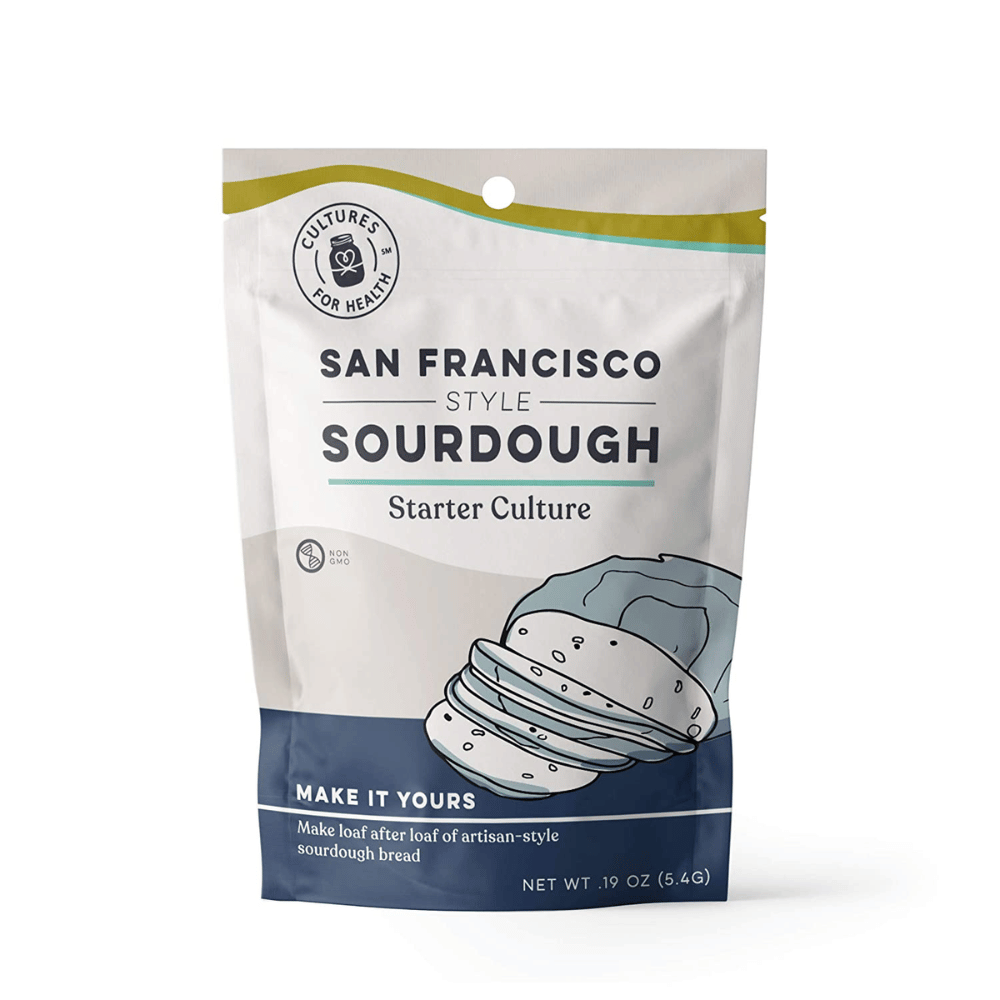
Cultures for Health San Francisco Sourdough Starter
Best Pre-made Sourdough Starter
Why We Mention It
Cultures for Health San Francisco Sourdough Starter will give you the exact flavor of traditional San Francisco sourdough and provide a delicious, unique taste in your bread. It is an excellent product that colonizes flour levain rapidly to create a great flavor in your baking. The quality and perfect sourdough flavor it provides makes this starter unbeatable. As well as having a great taste, this culture is also easy to maintain.
Some Facts You Should Know
Chock-full of prebiotics, this starter contains a blend of bacteria and yeast that help to improve the nutritional content of your breads and pastries, and also gives them incredible flavor. Furthermore, each batch is pathogen-tested by a third-party laboratory to ensure you’re getting a high quality product that’s perfectly safe for daily consumption. With Cultures for Health San Francisco Sourdough Starter in your kitchen, you can get restaurant-quality bakes right in your home quickly, easily, and safely. Give your cooking an upgrade today with this amazing starter!
Flour for Sourdough FAQs
Sourdough starters can be a little intimidating if you've never worked with them before.
There's a lot of conflicting information out there about sourdough starters, and it can be hard to know where to start.
We've compiled a list of the most frequently asked questions about flour for sourdough starters. This list includes tips on how to make a starter and how to use it in recipes.
How do I easily bake sourdough bread?
Homemade sourdough bread is one of the most rewarding culinary experiences you can have in the kitchen. It's a simple process that requires a bit of patience, but once mastered, the rewards are hard to beat - crispy crusts and pillowy interiors that would make any baker proud.
The key to success with sourdough bread is having a good starter culture. This can be achieved by making your own from scratch or purchasing from an artisanal bakery. Either way, it's important to feed your starter regularly (about every 12-24 hours) so it stays active and alive!
To get started on your own sourdough bread journey, try this easy recipe:
Ingredients:
- 4 cups (500 g) medium Rye or Bread flour
- 1 cup (240 ml) warm water
- ½ teaspoon sugar or honey for feeding the starter
- 2 teaspoons sea salt
Instructions:
- Start by activating your starter culture - Mix together ½ cup of warm water with ½ cup rye flour until smooth and let rest at room temperature for 6–12 hours covered lightly with plastic wrap. When activated, if your starter has doubled in size then it’s ready to use! If not double in size by 12 hours then discard half and repeat process again until it doubles over 6–12 hour period before using in recipe below.
- Once activated, mix together all ingredients into a dough ball - In large bowl combine 3 ¾ cups of rye flour + Starter Culture + 1 Cup Warm Water + Salt mixing until combined. Knead gently until well incorporated which should take about 10 minutes total time kneading once ingredients are mixed together creating somewhat wet ball of dough that’s easy enough to handle without sticking too much to hands/surface – adding additional small amounts of either more rye flour or more warm water as needed when kneading/mixing dough for best results possible as far texture consistency goes on finished product need go here).
- Proof Your Dough And Allow It To Rise - Place formed dough Ball into greased bowl lightly rubbing olive oil or melted butter evenly over surface area covered bottom side up and let rise overnight 8–16 Hours depending how cool environment / refrigerator used end up being during proofing process itself before moving onto next step 4 below).
- Bake Your Sourdough Bread - Preheat oven 375F/190C degrees; Take formed risen dough out allowing quickly shape loaf again rolling pin slightly stretching sides outward along top leaving even rises rounded edges same time smoothing down center portion if needed; Place loaf parchment lined baking sheet scoring number lines across top surface width wise while brushing away extra loose bits around other areas. Sprinkle a little all purpose flour dust further away portions. Ensure you keep oven door closed during entire cooking process. Bake 25 minutes rotating halfway through cooking time. Immediately after done remove still hot pan allow cool before slicing!
What is a sourdough starter and how do I make one?
A sourdough starter is a fermented mixture of flour and water that's used to leaven bread. To make a starter, mix together equal parts flour and water in a bowl or jar. Cover the mixture and let it sit at room temperature for 3-5 days, stirring it once a day. After 3-5 days, you should see signs of fermentation, such as bubbling or a sour smell. At this point, your starter is ready to use!
What is the best flour for sourdough bread?
You can use any type of flour to make a sourdough starter. However, some bakers prefer to use whole wheat flour or rye flour because they contain more natural yeast and bacteria.
The healthiest flour for sourdough bread is soft wheat or whole wheat flour. Soft wheat is higher in protein and fiber than other grains and has a lower gluten content, which makes it easier to digest. It also contains additional nutrients like magnesium, zinc, chromium and iron. Wheat flour's high fiber content helps regulate our digestive system and reduce cholesterol levels in the body. Additionally, potential health benefits from regularly consuming sourdough bread include improved glucose control and insulin sensitivity since the long fermentation process allows for greater absorption of proteins from ingredients like oats or spelt before baking begins. Ultimately, while there are many types of flour which can make delicious sourdough bread - soft wheat or whole wheat flour is definitely the best option when it comes to nutritional value!
Do I need to add anything else to my sourdough starter besides flour and water?
No, you do not need to add anything else to your sourdough starter besides flour and water. However, some bakers like to add a pinch of salt or a small amount of honey or sugar to their starter to help encourage fermentation.
How do I know if my sourdough starter is still good?
To test whether or not your sourdough starter is still good, mix a small amount of it with equal parts warm water and all-purpose flour. If it rises and doubles in size within 8-12 hours, your starter is still active and ready for use!
Can I bake bread without using a sourdough starter?
Yes, you can bake bread without using a sourdough starter. However, bread that is made with a starter will usually have better flavor and texture than bread that is made without one. If you don't have a sourdough starter on hand, you can try using another type of leavening agent, such as instant yeast or baking soda/powder.
Is it necessary to use organic flour when baking sourdough bread?
No, it is not necessary to use sourdough starter organic flours when baking sourdough bread. However, some people prefer to use organic ingredients whenever possible. If you are concerned about using organic ingredients, you can look for organic versions of the other ingredients you need for your recipe, such as yeast and salt.
Can I bake gluten-free sourdough bread?
Yes! There are several types of gluten-free flours that can be used for baking bread, including rice flour, almond flour and tapioca flour. You may need to experiment with different combinations of gluten-free flours to find one that works well for your recipe and produces results that you are happy with.
Why is a starter culture important for baking sourdough bread?
A starter culture is an essential part of baking sourdough bread as it is responsible for the flavor and texture of the final product. The starter culture acts as a pre-fermenting agent that adds complexity to the dough. It's made up of wild yeast (Saccharomyces Exiguus), lactic acid bacteria, and acetic acid bacteria, which aid in fermentation and produces natural gluten networks within the dough. The presence of these organisms helps produce unique flavors in the bread that are simply unattainable with store bought yeast alone because they naturally break down sugars into alcohols, acids, gases, esters, ketones and other compounds that create amazing flavor profiles.
The starter culture also provides structure in terms of how much gas will be needed to raise the loaf during its proofing time by controlling rate at which CO2 is given off through enzymatic activity from microbes present inside it. Additionally, these microbes provide an additional layer of protection against unwanted microorganisms such as those found on raw flour or other unsanitary conditions since they compete for food resources thus averting spoilage or contamination that can affect both taste and texture negatively.
In short, a starter culture ensures better aroma and taste in your sourdough loaves plus great texture due to increased fermentation processes while providing protection from any undesirable effects due to external factors; all reasons why its importance cannot be understated if you want your loaves turn out well!
What is whole grain flour versus stone ground flour?
Whole grain flour and stone ground flour are two varieties of flour, each containing different nutrients and benefits. Whole grain flour is made from the entire wheat berry, including all parts of the kernel—the bran, germ, and endosperm. By contrast, stone-ground flour is only milled from the endosperm portion of the wheat berries.
Whole grain flours have a wide array of nutritional benefits due to their high content of dietary fiber and natural vitamins as compared to white or bleached flours that have had most of these beneficial components removed during processing. When used in breads or other baked goods like muffins or cakes, whole grain flours provide a hearty flavor and denser texture than their white counterparts.
Meanwhile, stone ground wheat flours come out with a more earthy taste because they contain more protein due to keeping both germ and endosperm intact in comparison to traditional roller milling methods which remove much of this nutrition prior to grinding into white flour. The result is an excellent choice for sourdough breads as it provides good gluten structure while still retaining its natural flavorsome qualities; it’s also great for cakes that require stability during baking but still retain a moist texture in the final product too!
What Is The Best Flour For Sourdough Starter For You?
If you're thinking about making your own sourdough starter, there are a few things you need to know about flour. Different types of flour will result in different starters, so it's important to choose the right one for you. We've outlined four different types of flour that can be used for a sourdough starter, as well as one gluten free option. If you're not interested in making your own starter, we've also recommended a highly rated pre-made sourdough starter that is available on Amazon. Click the check price button to see the latest pricing on Amazon!

